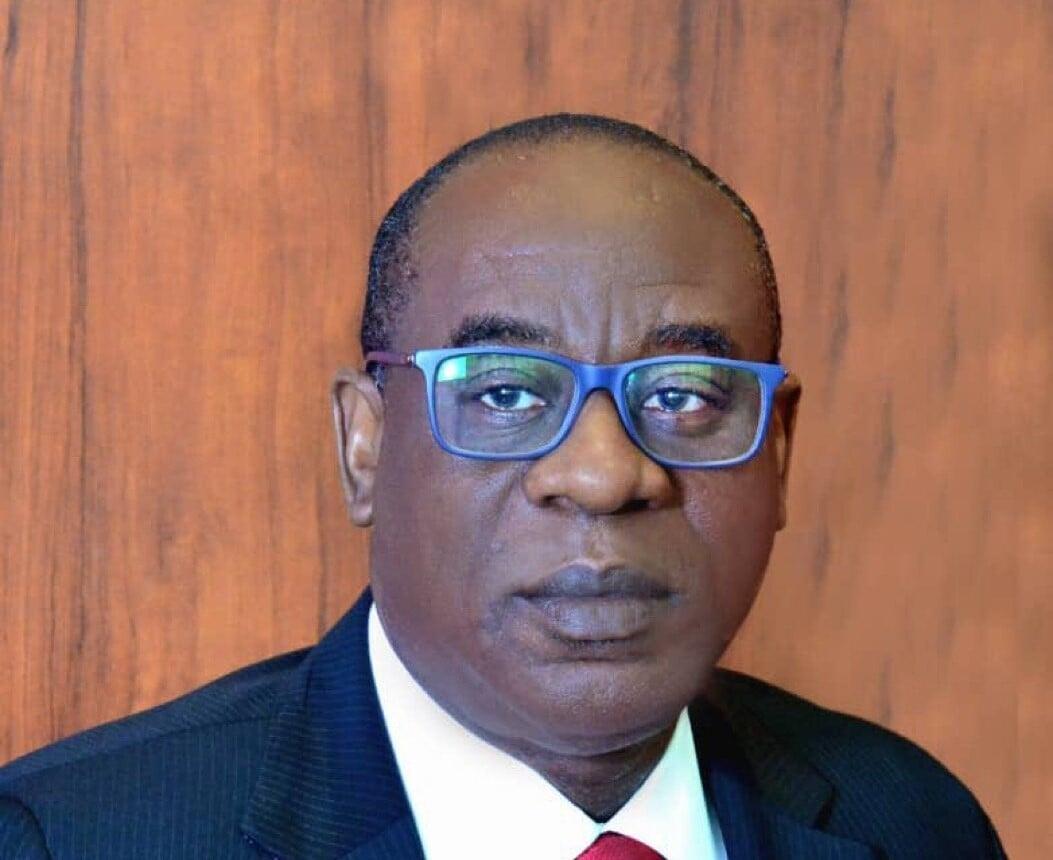Inflation rate: Nigeria does better than other African countries – CBN
The Central Bank of Nigeria, CBN, said the country's inflation rate was still better than most African countries.
Acting CBN Governor Folashodun Shonubi said so on Tuesday at the 2023 Zenith Bank International Trade Seminar in Lagos.
According to him, several factors have contributed to the rise in global inflation.
Speaking on the theme, “Nigeria’s non-oil export industry. The present, the future,” Shonubi expressed concern over the low growth rate of non-oil exports relative to gross domestic product.
The Acting Governor of the CBN, who was represented by Deputy Governor for Economic Policy at the CBN, Kingsley Obiorah, said Nigeria's inflation rate stood at 22.8%, adding that the International Monetary Fund expected the country to experience a growth moderation of 3.2% in 2023.
Obiorah said, "Now when you go down to Africa and neighboring Ghana, at last count, inflation is 42.5%. We have it at 31% in Ethiopia and 36% in Egypt.
"So in our dear country, we are at 22.8%. When you hear these numbers, it tells you that we are not doing so badly, but all of this has also affected economic growth itself. Today the IMF revised growth down from 3.5% to 3% this year and 3% next year.”
He added: "For sub-Saharan Africa, they expect growth to slow from 4.1% last year to 3.5% this year, but to come back to a just over 4% next year. In Nigeria, they expect us to do 3.2% this year."
Obiorah mentioned that the war between Russia and Ukraine and the shift from goods to services are also important factors.
“We know that the war between Russia and Ukraine contributes a lot to this because both countries are major exporters of raw materials. Both account for 30% of sunflower exports in the world. such a region is at war, you know what will happen to food prices in the world.
“We also know that there has been a shift in demand from goods to services; services are generally more expensive. There is also the disruption going on in China today with their zero COVID policy, the power cuts as we know it and then the switch from coal to more renewables has also meant that electricity isn't as valuable as it used to be,” he said.
Related NewsHe said the high rate of investment in real estate services in China has also led to disruptions in the supply chain.
"We are also seeing in China today a correction in the real estate market. Many Chinese people don't have quite the kind of investment vehicles that the average American has.
"Many of them have invested their savings in real estate. But that has meant an oversupply of property in China today. There are 65 million empty apartments in China."
He added: "That's enough to take the entire population of France. So this correction also leads to supply chain disruptions."
"In the decade between 2001 and 2011, the ratio of non-oil exports to Nigeria's GDP was 0.8%. And you can imagine that over the next decade, so, from 2012 to 2022 , we were still at 1.2%", showing a 0.4% increase over 20 years.
“We need to grow much faster. Countries that are much smaller than us are doing much better,” he said.
Obiorah also compared the land size of some countries to that of Nigeria, citing their ratio of non-oil exports to GDP.
He said: "The Netherlands has an area of 34,000 square kilometers.
“So if you add water you get to 42,000. $108 billion in non-oil exports.
"Now keep in mind that the Netherlands is smaller than Niger State, actually the size of Niger State. I'll give you another example. Ireland is a a country that covers about 70,000 square kilometers, and it regularly exports 170 billion non-oil dollars, which allows us to do better."

The Central Bank of Nigeria, CBN, said the country's inflation rate was still better than most African countries.
Acting CBN Governor Folashodun Shonubi said so on Tuesday at the 2023 Zenith Bank International Trade Seminar in Lagos.
According to him, several factors have contributed to the rise in global inflation.
Speaking on the theme, “Nigeria’s non-oil export industry. The present, the future,” Shonubi expressed concern over the low growth rate of non-oil exports relative to gross domestic product.
The Acting Governor of the CBN, who was represented by Deputy Governor for Economic Policy at the CBN, Kingsley Obiorah, said Nigeria's inflation rate stood at 22.8%, adding that the International Monetary Fund expected the country to experience a growth moderation of 3.2% in 2023.
Obiorah said, "Now when you go down to Africa and neighboring Ghana, at last count, inflation is 42.5%. We have it at 31% in Ethiopia and 36% in Egypt.
"So in our dear country, we are at 22.8%. When you hear these numbers, it tells you that we are not doing so badly, but all of this has also affected economic growth itself. Today the IMF revised growth down from 3.5% to 3% this year and 3% next year.”
He added: "For sub-Saharan Africa, they expect growth to slow from 4.1% last year to 3.5% this year, but to come back to a just over 4% next year. In Nigeria, they expect us to do 3.2% this year."
Obiorah mentioned that the war between Russia and Ukraine and the shift from goods to services are also important factors.
“We know that the war between Russia and Ukraine contributes a lot to this because both countries are major exporters of raw materials. Both account for 30% of sunflower exports in the world. such a region is at war, you know what will happen to food prices in the world.
“We also know that there has been a shift in demand from goods to services; services are generally more expensive. There is also the disruption going on in China today with their zero COVID policy, the power cuts as we know it and then the switch from coal to more renewables has also meant that electricity isn't as valuable as it used to be,” he said.
Related NewsHe said the high rate of investment in real estate services in China has also led to disruptions in the supply chain.
"We are also seeing in China today a correction in the real estate market. Many Chinese people don't have quite the kind of investment vehicles that the average American has.
"Many of them have invested their savings in real estate. But that has meant an oversupply of property in China today. There are 65 million empty apartments in China."
He added: "That's enough to take the entire population of France. So this correction also leads to supply chain disruptions."
"In the decade between 2001 and 2011, the ratio of non-oil exports to Nigeria's GDP was 0.8%. And you can imagine that over the next decade, so, from 2012 to 2022 , we were still at 1.2%", showing a 0.4% increase over 20 years.
“We need to grow much faster. Countries that are much smaller than us are doing much better,” he said.
Obiorah also compared the land size of some countries to that of Nigeria, citing their ratio of non-oil exports to GDP.
He said: "The Netherlands has an area of 34,000 square kilometers.
“So if you add water you get to 42,000. $108 billion in non-oil exports.
"Now keep in mind that the Netherlands is smaller than Niger State, actually the size of Niger State. I'll give you another example. Ireland is a a country that covers about 70,000 square kilometers, and it regularly exports 170 billion non-oil dollars, which allows us to do better."
What's Your Reaction?






















